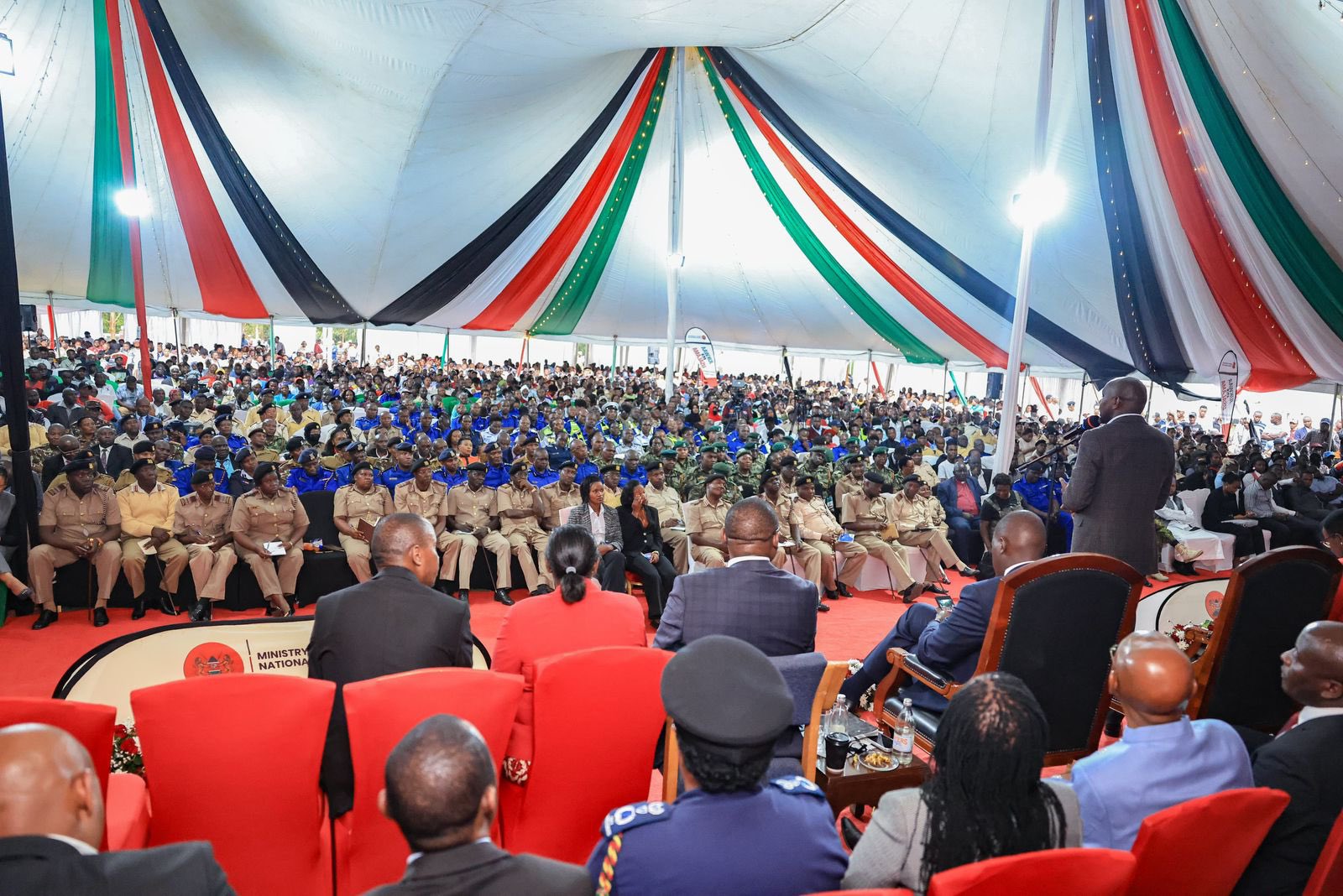
Interior and National Administration Cabinet Secretary Kipchumba
Murkomen took over the helm of the super ministry from the former CS and
current DP Kithure Kindiki, in a cabinet reshuffle.
Before his appointment and assuming office, Kenyans
witnessed or interacted much with then CS Prof. Kindiki as he travelled far and
wide attending to various security challenges across the breadth and length of
Kenya.
Then, CS Prof Kindiki was a constant feature on television
and print media.
He was ever in the trenches with frontline officers, as he
not only attempted to intervene through problem solving in some of our most
complex security challenges, but also took the occasion to deepen his
understanding of the nature and complexity of our national security terrain.
Come in, Murkomen as CS, and evidently, he had a different
script of action. He seemed well aware of what he was getting into (most likely
from his taking over notes from the professor!).
From the brief, he learned fast that security is not your
routine occupation of armchair decision-making.
It’s not linear and reliant on the best and elaborate of
plans. It’s an unpredictable landscape where decision-making is constantly
problematic and made on the fly!
Security is a ‘wicked’ enterprise where there are no
immediate answers, whether right or wrong.
And this reality speaks more to the internal security
docket, especially law enforcement of policing the people through a democratic
process reliant on constitutionalism and the rule of law.
As such, the CS, in my opinion, got it on point by taking
the learning curve route, where he would better serve based on a sharpened
understanding of intrinsic variables and dynamics that inform national internal
security and safety.
This is what is called evidence-based interventionism.
’Jukwa la Usalama’ was thus such a reasoned medium - as a
vehicle to reach out not only a critical
mass of opinion shapers of the security ecosystem from all 47 county locales in
one sitting, but also to interact fully with all, capture an original data base
for future utility, thrash out any lingering ambiguities in realtime,
appreciate the nuanced details and power dynamics inherent, and also build
frontline networks, while still at it.
This initiative hence, traversed the entire nation,
focusing on counties as data collection centres to offer diversity in national
crime experiences and typologies.
And as they were open forums, well covered by media, we saw
an unprecedented level of openness, honesty, candid conversations by all and
sundry, light moments of joy, and at times, some eruptions of pent-up
frustrations. That’s just how authentic conversations go.
Though public opinion may be divided on the efficacy and
outcome of the initiative, and rightly so - since we are all entitled to our
own opinions - on average, this was and remains a great forum and tool that
managed to promote and capture candid conversations on a diverse public policy
issues, security inclusive.
And as part of the public policy-making process, a direct
interaction with the public and stakeholders is a non-negotiable.
This is more important for the CS, who is a political leader
of the ministry and is responsible for effective policy formulation and
communication.
My take is that his policy ‘arrowhead’ is now more primed
and well-sharpened than before, or could ever have been through routine
bottom-up briefings that only tell half of the story.
And such positive gains from the forum are equally inclusive
to all leaderships of various security agencies within the ministry.
For example, for the Kenya Coast Guard Service, our resource-seeking talking points were better clarified from the public’s perspective,
since they made numerous unequivocal pleas for our resource facilitation more
effectively than perhaps we have been doing all along! And the same may be said for
sister agencies, too.
Nothing is as
compelling as the public being the mouthpiece of a public sector agency!
Every initiative, good or bad, has a cost. Costs alone don’t
determine the relevance and true efficacy of a programme.
Let’s evaluate the Jukwa la Usalama forum for its outcomes
beyond the cost imperative.
Public security enterprise - what keeps the realm safe and
secure - is expensive. Yet it’s cheaper when the expenses are proactively
assigned and utilized well before the fact than after.
As Benjamin Franklin aptly said, “An ounce of prevention is
better than a pound of cure!”
Public policing was established in 1929 in the UK by the
Home Secretary (equivalent to CS
interior). But what isn’t known is the background labor he deliberately
undertook to make this reality happen.
The general public and politicians of the time politicized
his good intentions of establishing a modern police force for the good of the
society, yet he remained focused, unrelenting, he pleaded, convinced, and
reasoned until he won.
Though not sure, I’d want to believe that Home Secretary
Peel utilized a UK version of the time Jukwa la Usalama as an avenue to engage
the leaders and public and get their buy-in on his public policing reform
agenda of the time.
But in 1829, the Metropolitan Police Act was passed by the UK
parliament, and the Metropolitan Police (MP) was born.
This new outfit was rapidly benchmarked globally and
exported to the rest of the world over time, including Kenya during colonization.
That’s the power of proactive law enforcement engagement for sustainable
outcomes.
Let’s all support public security interventions, and not
make too much ado about nothing.
(Bruno Isohi Shioso is DG KCGS)












